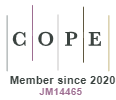The normative impossibility of source code patent in Brazil and the software plagiarism problem
DOI:
https://doi.org/10.5585/rtj.v9i1.13169Keywords:
Intellectual property, Software patent, PlagiarismAbstract
It is discussed the absence of the normative possibility of patenting a computer program in Brazil, along with the resulting effects of the shortage of an adequate protection to that immaterial work which cannot be compared to other artistic and literary works as it currently occurs in Brazilian legislation. Once the software itself does not have adequate protection, there is an incentive to plagiarism and counterfeiting. This submits the person of the originator of the computer program to risks and uncertainties of needing to draw upon common means to protecting their patrimony, without there being, however, guarantee of exclusivity and primacy over their intellectual work, which is the source code. By using the deductive method and the bibliographic research, the study proposes the necessity of updating the law, so that it will conform to, for example, countries with emphasis on entrepreneurship, such as the United States. The article concludes that it is not possible to achieve healthy entrepreneurship if, to people with an innovative and inventive eye, are not guaranteed by law, the exclusivity and primacy of their creation for a reasonable time lapse.Downloads
References
ASSAFIM, João Marcelo de Lima. Controles sociais extrínsecos do exercício de direitos de propriedade intelectual: antitruste como tutela de direitos fundamentais. Encontro Preparatório do Conpedi, 2007, Campos dos Goytacazes. v. 1. p.1-26. Disponível em: http://www.publicadireito.com.br/conpedi/manaus/arquivos/anais/campos/joao_marcelo_de_lima_assafim.pdf. Acesso em: 20 fev. 2020.
BARBOSA, Denis Borges. Uma introdução à propriedade intelectual. 2. ed. São Paulo: Lumen Juris, 2010.
BESSEN, James; HUNT, Robert M. An empirical look at software patents. Federal Reserve Bank of Philadelphia. Working paper nº 03-17/R. March, 2004.
BRASIL, Lei 9.279 de 14 de maio de 1996 – regula direitos e obrigações relativos a propriedade industrial. 1996. Disponível em: http://www.planalto.gov.br/ccivil_03/leis/L9279.htm. Acesso em: 20 fev. 2020.
BRASIL. Lei 9.609/1998. Dispõe sobre a proteção da propriedade intelectual de programa de computador, sua comercialização no País, e dá outras providências. 1998. Disponível em: http://www.planalto.gov.br/ccivil_03/leis/L9609.htm Acesso em: 20 fev. 2020.
BRASIL. Lei 9.610/1998. Altera, atualiza e consolida a legislação sobre direitos autorais e dá outras providências. 1998. Disponível em: https://www.planalto.gov.br/ccivil_03/leis/L9610.htm. Acesso em: 20 fev. 2020.
BRASIL. Lei 10.406 de 10 de janeiro de 2002. Institui o Código Civil. 2002. Disponível em: http://www.planalto.gov.br/ccivil_03/leis/2002/L10406.htm. Acesso em: 20 fev. 2020.
BRASIL. Tribunal Regional Federal (3ª. Região). Apelação cível nº 00333201203503008 0000333-18.2012.5.03.0035. Relator: Oswaldo Tadeu B.Guedes. Turma Recursal de Juiz de Fora. Minas Gerais,11 de outubro de 2012. Jusbrasil: jurisprudência. Disponível em: http://trt-3.jusbrasil.com.br/jurisprudencia/124291017/agravo-de-peticao-ap-333201203503008-0000333-1820125030035. Acesso em: 20 fev. 2020.
BROOKS JR, Frederick P. No silver bullet – essence and accident in software engineering. University of North Carolina, 1986. Disponível em: http://worrydream.com/refs/Brooks-NoSilverBullet.pdf. Acesso em: 20 fev. 2020.
CLOVER, July. Flappy Bird to Return to the App Store. Portal Macrumors. 2014. Disponível em:http://www.macrumors.com/2014/03/19/flappy-bird-return/. Acesso em: 20 fev. 2020.
CNPQ. Relatório da Comissão de Integridade de Pesquisa. 2011, p.4. Disponível em: http://www.cnpq.br/documents/10157/a8927840-2b8f-43b9-8962-5a2ccfa74dda. Acesso em: 20 fev. 2020.
PRIBERAM. Dicionário Priberam de Língua Portuguesa. Disponível em: http://www.priberam.pt/dlpo/reprodu%C3%A7%C3%A3o. Acesso em: 20 fev. 2020.
ELISE, Abigail. 'Flappy Bird' Game Deleted Over Nintendo Copyright? Creator Receiving Death Threats. Disponível em: http://www.ibtimes.com/flappy-bird-game-deleted-over-nintendo-copyright-creator-receiving-death-threats-1554401. Acesso em: 20 fev. 2020.
FREITAS, Cinthia Obladen de Almendra; BARBOSA, Claudia Maria. As novas tecnologias à frente da detecção de plágio em software e do direito de autor. In: Direitos e novas Tecnologias. ROVER, Aires José; NASCIMENTO, Valérias Ribas do; CELLA, José Renato Gaziero (Orgs.). Conpedi/UFS. Florianópolis: CONPEDI, p. 123-143, 2015.
GHEZZI, Carlo; JAZAYERI, Mehdi. Conceitos de linguagens de programação. Trad. A. S. Veloso. Rio de Janeiro: Campus, 1985.
GOVINFO.ORG. Public Law 96-517/80. 1980. Disponível em: https://www.govinfo.gov/content/pkg/STATUTE-94/pdf/STATUTE-94-Pg3015.pdf. Acesso em: 20 fev. 2020.
JESUS, Damásio de. Direito Penal, 3º volume. Parte especial: crimes contra a propriedade imaterial a crimes contra a paz pública. 23ª ed. São Paulo: Saraiva, 2015.
KROKOSCZ, Marcelo. Outras palavras sobre autoria e plágio. São Paulo: Atlas, 2015.
LIMA, Gabriel Maciel de; LIMA, Thaisi Leal Mesquita de; GUIMARÃES, Patrícia Borba Vilar. A proteção jurídica de softwares e sua contribuição para o desenvolvimento brasileiro. Revista Cadernos de Dereito Actual. Vigo, Espanha. nº 11. p.161-172, 2019.
LINUX. Linux Informatio Project. 2006. Disponível em: http://www.linfo.org/source_code.html. Acesso em: 20 fev. 2020.
MACK, Eric. Flappy Bird Creator May Have Been Scared By Legal Threats After All. Disponível em: http://www.forbes.com/sites/ericmack/2014/02/10/flappy-bird-creator-may-have-been-scared-by-legal-threats-after-all/#1ddf03014bb4. Acesso em: 20 fev. 2020.
MAXWELL, Winston; BOLGER, Katherine; ZEGGANE, Thomas. A comparative French and U.S. law approach to scènes à faire and other non-protectable elements in copyright law. Propriétés Intellectuelles. France, n° 30, January 2009. Disponível em: https://www.hoganlovells.com/~/media/2b2d2cde1d424a9aa4c07013ecfcb61d.ashx. Acesso em: 20 fev. 2020.
MOORE, Todd. Flappy Bird is flapping about Copyright Infringement: Disponível em: http://toddmoore.com/2014/06/06/flappy-bird-is-flapping-about-copyright-infringement/. Acesso em: 20 fev. 2020.
MOSSOFF, Adam. A brief history of software patentes (and why they’re valid). George Mason University School of Law. Center for the protection of intelectual property, Arlington, VA: 2013.
PRICEWATEHOUSE COOPERS. Lei do Software e seu regulamento. São Paulo: Atlas, 1999.
ROCHA, Hilton Ricardo. Software & Direito - Definição, Criação e Propriedade. Portal Âmbito Jurídico. Disponível em: http://www.ambito-juridico.com.br/site/index.php?n_link=revista_artigos_leitura&artigo_id=149. Acesso em: 20 fev. 2020.
SALES, Diego Felis. A patenteabilidade do software no direito brasileiro. Viajus. Disponível em: http://www.viajus.com.br/viajus.php?pagina=artigos&id=1840&idAreaSel=12&seeArt=yes. Acesso em: 20 fev. 2020.
TIGRE, Paulo Bastos; MARQUES, Felipe Silveira. Apropriação tecnológica na economia do conhecimento: inovação e propriedade intelectual de software na América Latina. Revista Economia e Sociedades. Campinas, v.18, n°3, p.547-566, dez. 2009.
USPTO. Unite States Patent and Trademark Office. Patents counts by class by year – Report. 2020. Disponível em: https://www.uspto.gov/web/offices/ac/ido/oeip/taf/cbcby.htm. Acesso em: 20 fev. 2020.
U.S DEPARTMENT OS HEALTH AND HUMAN SERVICES. Definition os Research Misconduct. Disponível em: http://ori.hhs.gov/definition-misconduct. Acesso em: 28 fev. 2019.
VISHNUBHAKAT, Saurabh. The commercial value of software patents in the high-tech industry. Center for the protection of intellectual property of George Mason University. School of Law. May 2015.
WACHOWICZ, Marcos. Propriedade intelectual do software e revolução da tecnologia da informação. Curitiba: Juruá, 2004.
Downloads
Published
How to Cite
Issue
Section
License
Copyright (c) 2020 Revista Thesis Juris

This work is licensed under a Creative Commons Attribution-NonCommercial-ShareAlike 4.0 International License.






